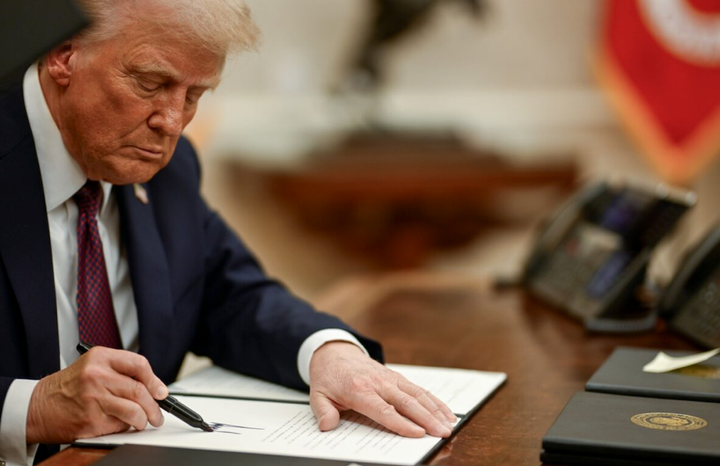‘Palpably Illegal’: State Attorneys Fire Back at Trump Administration’s Shaky Defense of IMLS Closure
'At bottom, the situation is simple,' attorneys argued in an April 16 filing. 'The President issued an executive order so illegal that Defendants cannot defend it on the merits.'

In a blistering reply brief, the 21 states suing to block the Trump Administration’s dismantling of the Institute of Museum and Library Services (IMLS) contend that the DOJ's April 14 opposition filing fails to identify any legal justification for the administration's actions. And for a simple reason: because there isn't one, the filing suggests.
“The opposition brief does not contain a single word in response to Plaintiffs’ argument that [the Trump Administration] acted arbitrarily and capriciously by dismantling these agencies without explanation,” the states’ April 16 brief asserts. “It is difficult to escape the conclusion that Defendants simply could not identify a colorable defense of the Closure Order or the Closure Decisions. And small wonder: these actions are palpably illegal.”
The states's filing comes after the Trump Administration argued this week that the 21 plaintiff states lack standing to pursue their case, and that the states's legal challenge is being pursued in the wrong venue. According to DOJ lawyers, any disputes over funding halted in the wake of the president’s March 14 executive order must be litigated in the Court of Federal Claims, which hears financial disputes involving the government. And any “personnel claims, like employee terminations and reductions in force,” must be litigated before “Congressionally designated entities” before they can reach federal court.
In their brief, the state attorneys reject the DOJ’s claims about standing and venue, which they characterize as an attempt to "evade judicial review" for the administration's "manifestly unlawful" conduct.
Citing "the law, the uncontested factual record, and common sense," the states say the they have a clear, "judicially cognizable interest in the destruction of three agencies that—until recently—provided them with millions of dollars in annual funding and numerous direct services,” the brief states. “And no jurisdictional barrier stands in the way of the Court enjoining those decisions and protecting the agencies that Congress created.”
Meanwhile, noticeably missing from the DOJ's filing, the states point out, is any meaningful defense of Trump’s effort to shutter the IMLS and several other agencies created and funded by Congress.
“Defendants do not deny that they have dismantled ‘three Congressionally created agencies,’ and rendered them incapable of fulfilling their statutory duties. Indeed, Defendants do not contest a single fact underlying Plaintiffs’ motion. They do not deny that the Institute for Museum and Library Services (IMLS) has terminated 'well over 1,000 grants' and reduced its staff to a caretaker crew incapable of fulfilling basic agency functions… Even more remarkably, Defendants do not attempt to argue that any of these actions are lawful,” the brief notes. “At bottom, the situation is simple. The President issued an executive order so illegal that Defendants cannot defend it on the merits.”
With the filings, the states’ motion for a preliminary injunction is now fully briefed and ready for a hearing before Chief Judge John J. McConnell, Jr., which is set for Friday, April 18.
The motion stems from an emergency action filed on April 4 in federal court in Rhode Island by 21 states seeking to stop the Trump administration’s bid to shutter the IMLS and six other agencies as outlined in a March 14 executive order.
“President Trump is leading a campaign to dismantle vast swaths of the federal government,” alleges the suit, led by attorney generals Peter Neronha (Rhode Island), Letitia James (New York), and Anne Lopez (Hawaii). “But whatever the President’s policy preferences, he cannot override the congressional enactments that authorize federal agencies, appropriate funds for them to administer, and define how they must operate.”


